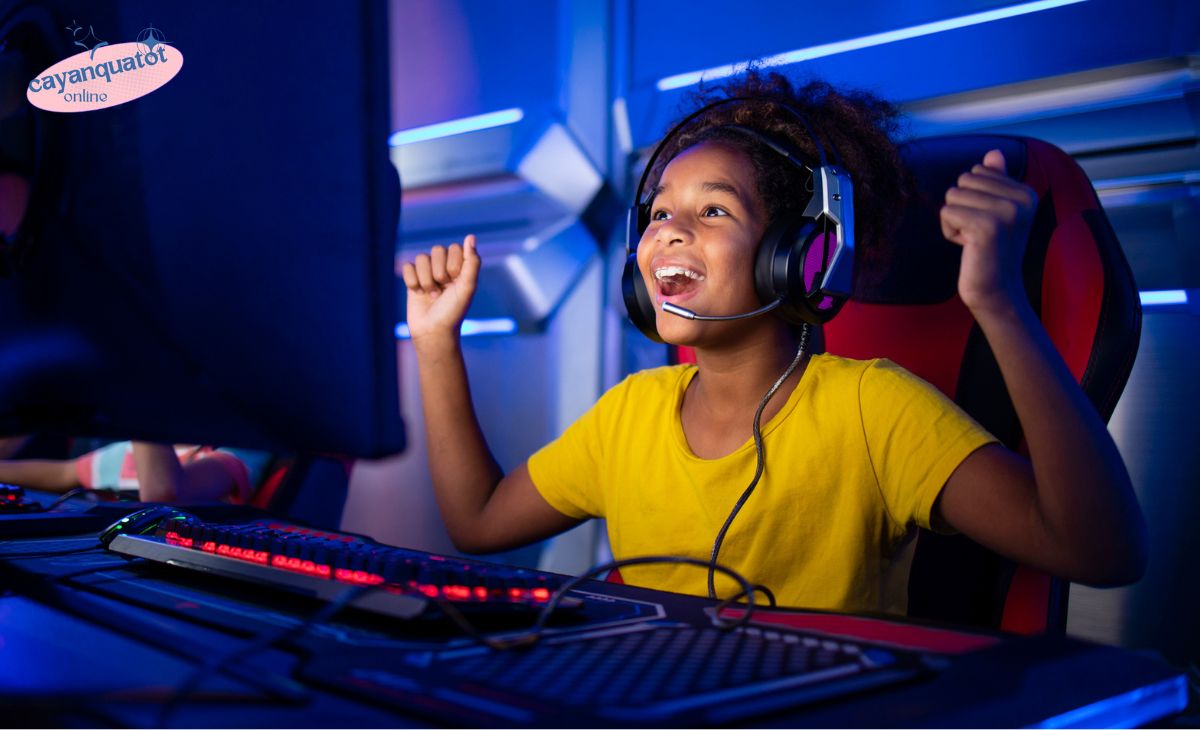Kids Guitar Music Time
Published on November 19, 2024

Is playing video games with a girl a potential way to help her cope with depression? It’s a complex question, and the answer isn’t a simple yes or no. At cayanquatot.com, we explore the potential benefits and drawbacks of using video games as a tool for managing depression, focusing on the social aspect of playing together. This isn’t a replacement for professional help, but rather an exploration of a potential supplementary approach.
Before diving into the role of video games, let’s establish a basic understanding of depression and its impact on individuals.
Depression is a mood disorder characterized by persistent sadness, loss of interest, and feelings of hopelessness. Symptoms can vary, but often include changes in sleep, appetite, energy levels, and concentration. A proper diagnosis requires consultation with a mental health professional.
Depression can significantly impact social interaction. Individuals may experience social withdrawal, isolation, and difficulty maintaining relationships. This isolation can exacerbate depressive symptoms, creating a challenging cycle.
It’s crucial to emphasize that depression requires professional treatment. Therapy, medication, or a combination of both are often necessary to effectively manage the condition. Video games should never be considered a replacement for professional help.
The relationship between video games and mental wellbeing is multifaceted and not fully understood. While excessive gaming can have negative consequences, moderate gaming can offer potential benefits.
Video games can provide a temporary escape from stressful situations and allow individuals to relax and unwind. The immersive nature of games can be a distraction from negative thoughts and feelings.
Playing games with others, especially friends or loved ones, can foster a sense of connection and belonging. Shared experiences, laughter, and teamwork can boost mood and combat feelings of isolation. This is particularly relevant when considering the social aspect of playing with a girl experiencing depression.
Many video games require problem-solving, strategic thinking, and hand-eye coordination. These cognitive challenges can be stimulating and rewarding, potentially improving cognitive function and boosting self-esteem.
Playing video games with a girl experiencing depression can offer several potential benefits, but it’s crucial to approach it with sensitivity and understanding.
Cooperative gameplay can create shared experiences, fostering a sense of connection and mutual support. Working together towards a common goal can strengthen bonds and provide a sense of accomplishment. Choosing games with cooperative modes (e.g., Overcooked, Portal 2) can be particularly beneficial.
Gaming can offer a welcome distraction from negative thoughts and feelings. The immersive nature of games can provide a temporary escape, allowing for a much-needed break from the challenges of depression. However, it’s crucial to ensure that gaming doesn’t become a form of avoidance.
Playing games together can create a safe and relaxed environment for communication. The shared experience can provide opportunities for emotional support and open dialogue, even if it’s implicit. Choosing games that don’t require intense competition can be helpful.
Shared victories in games can boost self-esteem and confidence. Celebrating successes together can reinforce positive feelings and counter the negative self-perception often associated with depression.
While playing video games together can be beneficial, it’s important to acknowledge potential drawbacks.
Excessive gaming can lead to social isolation, neglecting other important aspects of life, and potentially worsening depression. It’s crucial to maintain a healthy balance and ensure that gaming doesn’t become a form of escapism that prevents seeking professional help.
Competitive games can sometimes lead to frustration and negative emotions, potentially worsening depressive symptoms. Choosing cooperative or less competitive games is important to create a positive and supportive experience.
It’s crucial to remember that video games are not a cure for depression. They can be a helpful supplementary tool, but they should never replace professional treatment. Open communication and support are vital.
Best Games for Someone with Depression?
Cooperative games emphasizing teamwork are best. They build connection and shared accomplishment, combating isolation and low self-esteem. Examples include cooperative puzzle games (e.g., Portal 2, Overcooked), MMORPGs (with a focus on community), and story-driven games with positive narratives. Avoid highly competitive games.
How Much Gaming is Too Much?
There’s no set amount. Balance is key. Excessive gaming can worsen depression by causing social isolation, neglecting responsibilities, and impacting sleep and mood. Monitor for negative impacts on sleep, responsibilities, social life, and mood. Adjust gaming habits accordingly.
Talking About Depression During Games?
Open communication is good, but don’t force it. A relaxed gaming session can create a safe space for conversation. Listen actively, validate feelings, offer support, encourage professional help, and respect boundaries. You’re a friend, not a therapist.
My Friend Isn’t Enjoying Our Games.
Be flexible. Ask for feedback, try different genres, take breaks, and respect their preferences. If they’re not interested in gaming, find other ways to connect.
Resources Beyond Gaming?
Professional help is crucial. Encourage seeking support from mental health professionals, support groups, and online resources (like the NIMH website). Video games are a supplement, not a replacement for professional treatment. Prioritize professional help and a strong support network.
Playing video games with a girl experiencing depression can be a supportive and beneficial activity, fostering connection, providing distraction, and boosting self-esteem. However, it’s crucial to approach it with sensitivity, understanding, and realistic expectations. Video games are a supplementary tool, not a replacement for professional mental health treatment. Open communication, a balanced approach, and a focus on building a supportive relationship are key to maximizing the potential benefits. Always encourage seeking professional help when needed.